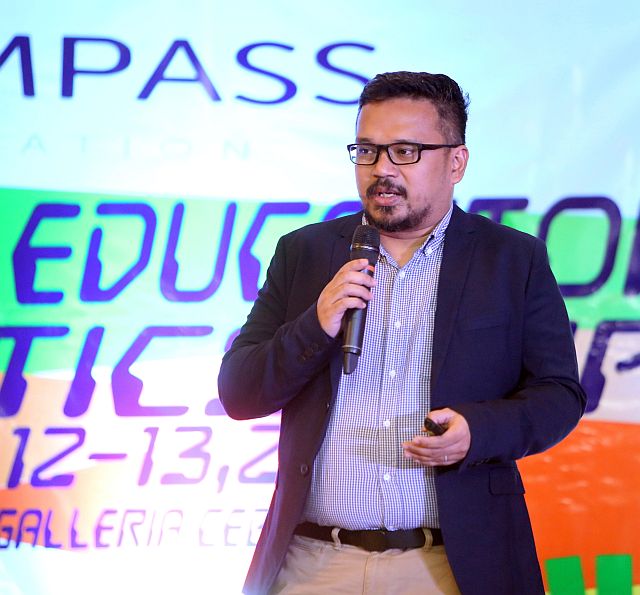
YASON (CDN PHOTO/LITO TECSON).
As more companies shift to modern ways of doing business, the demand for graduates educated in Science, Technology, Engineering, and Math (STEM) is also growing.
In the case of Accenture in the Philippines, its pivot to “new IT (information technology)” over the last five years depended on the STEM graduates, which was necessary for the firm to stay ahead of the competition.
“Everything from mobile apps to analytics, data science, natural language processing, etc., we heavily pivoted towards that. A lot of these technologies are heavily dependent on a supply of STEM-educated graduates from Manila, Cebu, and the regions around it,” Arvin Yason, Accenture managing director for technology, told reporters at the sidelines of the 2nd Compass Education Robotics Cup in Cebu City on Saturday.
With this, Yason said it is important to help the country build its pool of STEM graduates.
According to data from the Commission on Higher Education (Ched), business and medicine-related courses are the most popular in college, with those that finished degrees in these fields accounting for 45 percent of the total number of graduates in 2014.
Ched data from 2013, meanwhile, showed that those who took engineering and technology-related courses only made up 11 percent of the 564,769 graduates that year.
Those that took courses in math and natural sciences only accounted for 0.53 percent and 1.17 percent, respectively.
Career options
STEM graduates have many career options to choose from including becoming engineers, computer programmers and web developers, which are only few of the most in-demand jobs in the Information Technology-Business Process Management (IT-BPM) industry.
With the evolution of technology, the IT-BPM industry has become one of the biggest contributors to the economy, generating $22 billion in revenue in 2015 and presently employing 1.2 million workers.
“I think that, as a country, we have the right raw material. We are very competitive in terms of the talent we have here as well as the technology mindset and creativity. Creativity is part of innovation,” said Yason.
Yason added that he is personally impressed by the capability of the talent pool in Cebu, as far as his company is concerned.
Accenture has been here for 10 years now, and he said the presence and growth of the team here speak a lot about what he thinks of Cebu.
“Our continued presence and growth here speaks volumes of the availability of a talent pool. I am personally impressed not just by the capability but even so because of the creativity of my team here,” he said.
The firm, which has been in the Philippines for 31 years, employs over 45,000 workers across 23 facilities all over the country, including the cities of Makati, Mandaluyong, Taguig, Cebu, and San Nicolas in Ilocos Norte.
Accenture supports initiatives such as Compass robotics cup to help promote STEM among children.
Yason said it is best to expose kids to technology to allow them to experience the “art of possibility.”
Children’s knack for imagination, coupled with technological innovations available today, has helped bridge the gap between ideas and creation.
Yason said that by exposing children to technology, they are taught to dream and build. By encouraging them to embrace STEM, parents help them build the next wave of changes that will dictate how the world works.